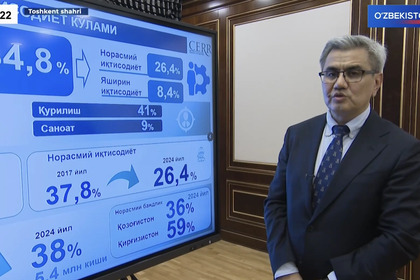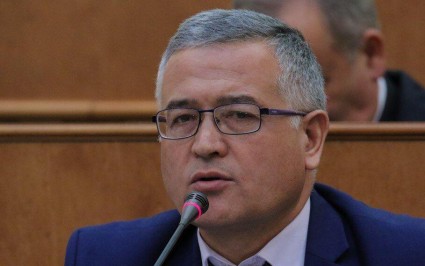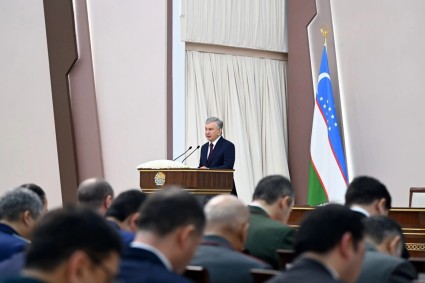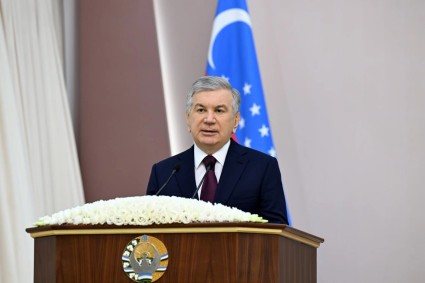The president Shavkat Mirziyoyev familiarized himself with a presentation on improving the system of combating the shadow economy on Monday.
The President’s Economic Policy Deputy Advisor/Director of Center for Economic Research and Reforms (CERR) Obid Khakimov told the Uzbekistan 24 TV channel that since independence in 1991, only the informal sector was part of the non-observed economy when calculating the country's GDP.
For the first time in 2024, the hidden (shadow) economy was calculated and included as an integral part of the GDP.
According to him, the volume of the hidden economy is estimated at over 120 trillion soums, or nearly $10 billion. "The largest ratio of it falls on the service sector, agriculture and construction," he added.
Khakimov stressed that over the past seven years, the scale of the unobserved economy has been significantly downscaled: “If in 2016-2017 its ratio to the GDP was 50-55%, now it has dropped to 34.8%. Also, the level of informal employment, which in 2017 stood at 60% of workers (7.9 million people), has decreased almost by half - to 38% (5.4 million).”
Khakimov emphasized that the fight against the shadow economy can be seen as a logical continuation of the poverty reduction policies.
22% of enterprises employ informal employees.
“Meanwhile, the salaries of officially registered employees are on average 1.3 million soums higher than those of those who work unofficially,” he said.
According to his estimates, official salaries in agriculture are 1.5 million soums higher, in trade — 1.3 million soums, in construction — 1.27 million soums, in housing and catering — 1.1 million soums.
He pointed out that in 18% of cases, businesses keep paying salaries "in envelopes." Among the main reasons for the existence of the shadow economy, named by businesses, the informal workers are cheaper (as stated by 49% of respondents), easier hiring and firing (36%), the ability to attract seasonal workers (33%), and the absence of tax liabilities (13%).
"At today's meeting, the Ministry of Economy and Finance presented proposals for each area, which, as the president emphasized, should not become burdensome for business. We are talking about reducing costs, simplifying hiring and firing procedures, as well as introducing new approaches to working with seasonal workers without the use of fines and sanctions," Khakimov summarized.
The head of state noted that the shadow economy cannot be curbed by strengthening control alone - it is necessary to improve tax culture among the population and businesses, and encourage those who work honestly.
Shavkat Mirziyoyev set the goal of applying an individual approach to each area, creating conditions for entrepreneurs in which it will be profitable to conduct an open and legal business. Based on this, instructions were given to improve and digitalize tax administration, provide additional incentives for entrepreneurship, and improve labor relations.
According to him, tax culture should become a matter for the whole society.














